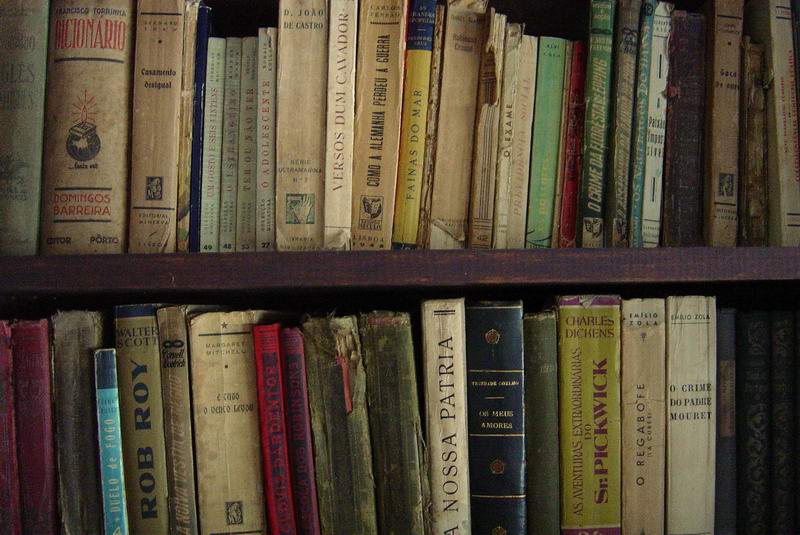The New Library: Digital Humanities and Libraries in Transition
From digitalhumanities
- brief history of "humanities" emphasizing major technological developments and their various impacts
- access, experts, & c.
- critical analysis of "humanities" online versus traditional (this needs to be refined)
- research guide
- tool box
- mapping the transition from page to screen [1]
- mapping the transition home [2]
- eliterature.org: [3] publications @ eliterature.org: [4]
Contents |
[edit] Digitalizing the Humanities
Imagine a world in which a scholar no longer in California can access fragile texts from Rare Books Libraries all over the world. This is the world of digital libraries and digital archiving. In this online world, partnerships have formed between computer specialists, librarians and the academic elite to produce interesting and educational archival sites to serve the scholarly public. Projects like the "Text Creation Partnership", and University of Nebraska Digital Projects are commercial partnerships between publishers and scholars that create academic sites which provide access to fragile archival materials likely to degrade in a short time. This digital archiving is a great act of preservation and access.
Digital Projects encompass all possible areas of the humanities. Digital humanities sites are teaching guides, electronic databases, and archives. They include materials from professors, libraries, universities, and private scholars. Media on these sites includes video, encoded texts, images, spoken word, and manuscripts.
The potential for digital humanities is endless. Headliners in the field believe that in a short time, "Scholars will widely resort to computing simulations to analyze the past, construct the present, and anticipate the future. Scholars will not only deduce explanations. In future, they will 'grow' them in simulations (Symposium)." Not only will access to materials be limitless, the teaching and interpretation of these materials will be limitless, too.
American scholars are considered far behind in the digital world when compared with European and Canadian scholars. Many scholars do not understand the new languages needed to understand the digital world. Understanding mark-up language, html, and css is a valuable, and necessary skill in today's libraries. "The library, especially the research library, is a cornerstone, if not the very foundation of modern humanities. It is undergoing right now a complete digital transformation. In the coming decades...the entirety of our cultural inheritance will be transformed and re-edited into digital forms (McGann)."
[edit] Selected Digital Sites that Encompass the Humanities
Literature sites: Including text-encoded materials, which provide searchable, public access to a variety of materials.
Religious sites:
- The American Religion Data Archive, and various other comparative religion sites compiled by professors and scholars.
Ethics sites:
History sites:
Linguistics sites:
- Research and Resources from a linguistics professor
- E-MELD: Electronic Metastructure for Endangered Languages Data
Philosophy sites:
- Epistemel Links, with 19,000 philosophical links and Philosopher's Quotations Database
Archiving the Web within the Web:
[edit] Digital Humanities Organizations and Projects
- Alliance of Digital Humanities Organizations
- University of Nebraska Digitization Project,About,Project List,Articles
- The Association for Computers in the Humanities ACH is an association devoted to aiding research in the humanities by way of computers.
- Digital Humanities at King's College London
A brief introduction to their digital humanities program: "The digital humanities comprise the study of what happens at the intersection of computing tools with cultural artefacts of all kinds. This study begins where basic familiarity with standard software ends. It probes how these common tools may be used to make new knowledge from our cultural inheritance and from the contemporary world. Several more or less synonymous terms are in current use, chief among them 'humanities computing'. Here we prefer 'digital humanities' for its emphasis on the integration of computing into the disciplines of the humanities and its transformation of them. Other terms, such as 'information and communications technology, name the amalgam of hardware and software but do not direct attention to scholarly concerns."
[edit] Sources
- Mattison, David. "The Digital Humanities Revolution." Searcher, May 2006, Vol. 14, Issue 5.
- "Collecting and Preserving Open Access Materials on the Web" "A Proposal to the Library of Congress from Cornell University"
- [http://www.brocku.ca/computingsymposium/welcome.html "Symposium: The Computer: The Once and Future Medium for Social Sciences and the Humanities". May2006. York University
- "Information Technology and the Troubled Humanities". McGann, Jerome. University of Virginia. Text Technology, Number 2, 2005.(PDF)

